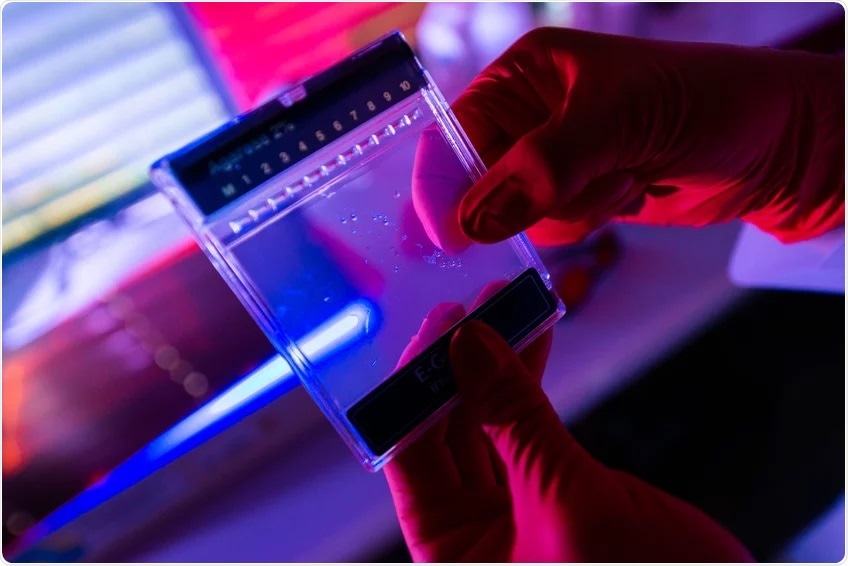Human’s inherent genetic variants can increase or decrease the risk of getting sick with COVID-19. The main genetic risk variant, inherited from Neanderthals, is surprisingly common for severe COVID-19. In turn, this raises the doubt of whether carrying this variant is being beneficial.

DNA analytics in the lab. Image Credit: Max Planck Institute for Evolutionary Anthropology
Now, a research study by Hugo Zeberg, a researcher at the Max Planck Institute for Evolutionary Anthropology (MPI-EVA) in Leipzig, Germany, and Karolinska Institutet in Sweden, demonstrates that the same gene variant—increasing the risk of getting severely sick with COVID-19—safeguards from another serious illness, by reducing an individual’s risk of contracting HIV by 27 %.
While some people become severely sick when affected with SARS-CoV-2, others experience only mild or no symptoms at all. Along with the risk factors, like old age and chronic diseases, for example, diabetes, humans’ genetic heritage also participates in an individual’s COVID-19 severity risk.
In 2020 autumn, Hugo Zeberg at Karolinska Institutet and MPI-EVA and Svante Pääbo at MPI-EVA showed that humans got the main genetic risk factor for severe COVID-19 from Neanderthals. In 2021 spring, the same scientists examined this variant in the DNA of the early humans and noticed that its frequency has improved considerably since the last ice age.
Indeed, it has become surprisingly common for a genetic variant inherited from Neanderthals. Thus, it might have had a favorable effect in the past on its carriers.
This major genetic risk factor for COVID-19 is so common that I started wondering whether it might actually be good for something, such as providing protection against another infectious disease.”
Hugo Zeberg, Study Author and Researcher, Max Planck Institute for Evolutionary Anthropology
The genetic risk factor is situated on chromosome 3—a region that consists of several genes. There are many genes in its proximity that encrypt receptors in the immune system. CCR5, one of the receptors, is employed by the HIV to affect white blood cells.
Zeberg found that individuals who had the risk factor for COVID-19 had less number of CCR5 receptors. This made him assess if they also had a lower risk of getting infected with HIV. By examining patient data obtained from three major biobanks (FinnGen, UK Biobank, and Michigan Genomic Initiative), he discovered that risk variant carriers for COVID-19 had a 27% lower risk of getting affected by HIV.
This shows how a genetic variant can be both good and bad news: Bad news if a person contracts COVID-19, good news because it offers protection against getting infected with HIV.”
Hugo Zeberg, Study Author and Researcher, Max Planck Institute for Evolutionary Anthropology
But, as the onset of HIV occurred only during the 20th century, safety measures against this infectious illness cannot describe why the genetic risk variant for COVID-19 became so common among humans even before 10,000 years.
“Now we know that this risk variant for COVID-19 provides protection against HIV. But it was probably protection against yet another disease that increased its frequency after the last ice age.”
Hugo Zeberg, Study Author and Researcher, Max Planck Institute for Evolutionary Anthropology